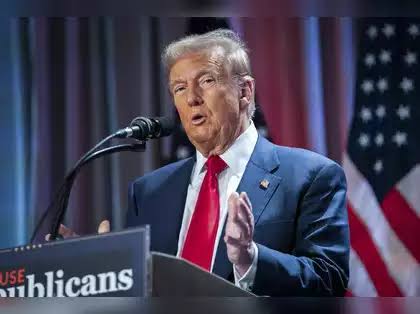
US President-elect Donald Trump has sparked controversy by suggesting that Canada could become the 51st state of the United States, claiming that “many Canadians” support the idea.
Posting on his social media platform, Truth Social, Trump wrote, “Many Canadians want Canada to become the 51st State. They would save massively on taxes and military protection. I think it is a great idea. 51st State!!!”
This statement follows a similar remark Trump made during a dinner with Canadian Prime Minister Justin Trudeau at his Mar-a-Lago estate in November. The suggestion reportedly elicited laughter but has since drawn sharp criticism from Canadian officials and citizens, particularly amid Canada’s current political upheaval.
The resignation of Deputy Prime Minister Chrystia Freeland earlier this week has plunged Canada into political turmoil. Freeland’s resignation letter cited disagreements with Trudeau over how to address Trump’s threats of imposing a 25-percent tariff on Canadian goods and managing a potential trade war.
Her departure has left Trudeau’s administration vulnerable, with critics accusing him of mishandling Canada’s most crucial trade relationship. Freeland’s resignation also highlights the immense pressure on Canada’s economy, with over 75 percent of its exports going to the US and nearly two million Canadian jobs tied to this trade.
While some Canadians have dismissed Trump’s comments as a joke in poor taste, others view them as a veiled threat. A recent survey by market researcher Leger found that 13 percent of Canadians support the idea of uniting with the US, though the vast majority remain opposed.
Trump’s repeated jabs at Trudeau, whom he has referred to as “the governor of Canada” in social media posts, have only exacerbated tensions. A senior official in Ottawa commented, “This is not funny. It’s humiliating and undermines our sovereignty.”
As Canada navigates its political crisis, Trump’s comments add an unusual dimension to the strained US-Canada relationship. With trade, immigration, and security issues at stake, the relationship between the two nations will remain a key focus in the early








